I came into Waypoint spiritually sick and relapsed after two years of sobriety. The programming was effective and the clinical staff was knowledgeable and helpful. I left as a better version of myself and am very grateful for my time here.
About Waypoint Recovery Center
Inpatient care is usually preceded by medical detoxification, a process that rids the body of toxic substances. Detox is necessary to eliminate cravings for abused substances that could disrupt and hinder the treatment program. Detoxification is overseen by a medical team that helps clients cope with the difficulties of withdrawal.
Detox is not a one size fits all process. The length of detox varies between clients based on several factors, including substance abuse history. A comprehensive assessment will determine how long a stay is (though most clients can expect a 10 day stay) and the frequency of medication administration.
Clients in the residential care program live in the facility under 24 hour monitoring from staff and their care team. Treatments are rooted in therapeutic activities, including 12 step programs, relapse prevention education, recovery skill training, and community involvement. Ultimately, therapy seeks to understand the root causes of a client’s addictive behaviors and teach them the coping skills needed to avoid future abuse.
Waypoint also provides experiential therapy services. Experiential therapy focuses on healing through holistic physical activities to show clients they can enjoy engaging with the world without drugs or alcohol. Examples of experiential therapy include art, music, meditation, outdoor, and equine assisted therapy.
IOP is designed for those whose symptoms don’t require close monitoring by staff, but it can also be used as a transitional program by those who complete the inpatient program. IOP is focused on individual and group therapy, where clients meet at the facility for a few hours a day throughout the week. IOP also has a family therapy component.
Facility Overview
Latest Reviews
Rehab Score
Gallery



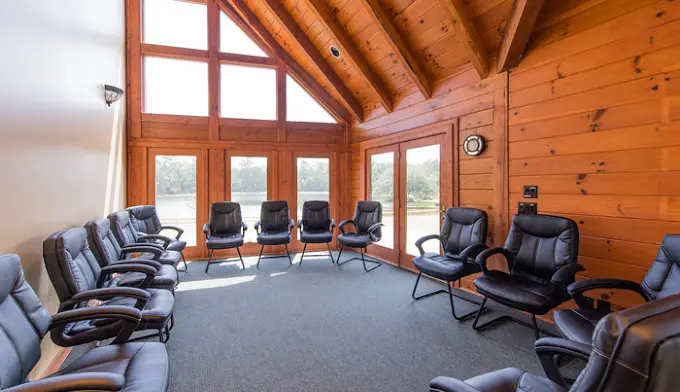


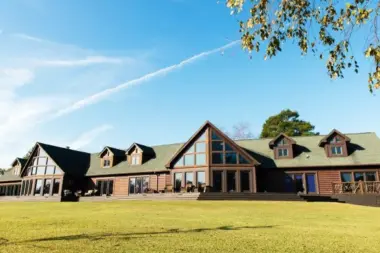


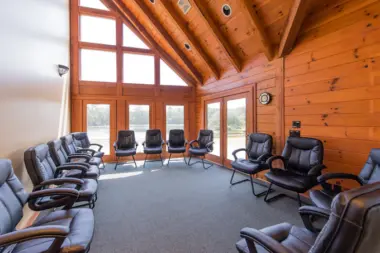


Accepted Insurance
Other Forms of Payment
Private insurance refers to any kind of healthcare coverage that isn't from the state or federal government. This includes individual and family plans offered by an employer or purchased from the Insurance Marketplace. Every plan will have different requirements and out of pocket costs so be sure to get the full details before you start treatment.
Self-pay involves paying for treatment out of your own pocket. You can use savings or credit, get a personal loan, or receive help from family and friends to fund your treatment. If you don't have insurance or your insurance plan doesn't cover a specific program, self-pay can help ensure you still get the care you need.
Financial aid can take many forms. Centers may have grants or scholarships available to clients who meet eligibility requirements. Programs that receive SAMHSA grants may have financial aid available for those who need treatment as well. Grants and scholarships can help you pai for treatment without having to repay.
Addiction Treatments
Levels of Care
Residential treatment programs are those that offer housing and meals in addition to substance abuse treatment. Rehab facilities that offer residential treatment allow patients to focus solely on recovery, in an environment totally separate from their lives. Some rehab centers specialize in short-term residential treatment (a few days to a week or two), while others solely provide treatment on a long-term basis (several weeks to months). Some offer both, and tailor treatment to the patient's individual requirements. Waypoint Recovery Center's structured, comprehensive program includes daily process group meetings with 12-step facilitation; education about recovery skills, relapse prevention, and various psychoeducational topics; individual therapy; development of living sober recreational skills; and involvement with the local AA and NA community. Before completion of the program, they help their clients plan follow-up care with an Intensive Outpatient Program in N. Charleston or with their own local resources.
Clients undergoing treatment in an intensive outpatient program (IOP) remain in or return to their homes following detox and/or inpatient rehab. They engage in multiple, extended treatment sessions weekly, with most intensive outpatient rehabs requiring between nine and 20 therapeutic hours per week. These programs are ideal for clients in early recovery and those at an elevated risk of relapse and typically combine counseling, recovery education, holistic care, and medication assisted treatment (MAT).
Clients engaged in a rehab aftercare program are in a more advanced stage of recovery. Many have already completed inpatient detox and/or rehab and have returned to their home, workplace, and community. Rehab aftercare services are designed to support clients' recovery over the long term and typically include a broad portfolio of resources, such as peer coaching and 12 step program induction. Clients may collaborate with their case manager and care team to create their care plan.
Withdrawing from addictive substances, like alcohol, benzodiazepines (like Xanax), or opioids, occurs during the detox process. Since this process can have uncomfortable and even dangerous side effects, the mission of a medically assisted detox is to provide an expert medical team to help monitor your health around the clock. They will work to keep you as safe and comfortable as possible, administering necessary medications to alleviate any withdrawal symptoms.
Treatments
The goal of treatment for alcoholism is abstinence. Those with poor social support, poor motivation, or psychiatric disorders tend to relapse within a few years of treatment. For these people, success is measured by longer periods of abstinence, reduced use of alcohol, better health, and improved social functioning. Recovery and Maintenance are usually based on 12 step programs and AA meetings.
Choosing a drug rehab in South Carolina helps you overcome drug dependency, learn how to manage cravings, and obtain the tools needed to prevent relapse. This is accomplished through individualized treatment that addresses a full spectrum of physical, social, and emotional needs.
Many of those suffering from addiction also suffer from mental or emotional illnesses like schizophrenia, bipolar disorder, depression, or anxiety disorders. Rehab and other substance abuse facilities treating those with a dual diagnosis or co-occurring disorder administer psychiatric treatment to address the person's mental health issue in addition to drug and alcohol rehabilitation.
A combined mental health and substance abuse rehab has the staff and resources available to handle individuals with both mental health and substance abuse issues. It can be challenging to determine where a specific symptom stems from (a mental health issue or an issue related to substance abuse), so mental health and substance abuse professionals are helpful in detangling symptoms and keeping treatment on track.
Opioid rehabs specialize in supporting those recovering from opioid addiction. They treat those suffering from addiction to illegal opioids like heroin, as well as prescription drugs like oxycodone. These centers typically combine both physical as well as mental and emotional support to help stop addiction. Physical support often includes medical detox and subsequent medical support (including medication), and mental support includes in-depth therapy to address the underlying causes of addiction.
Programs
Adult rehab programs include therapies tailored to each client's specific needs, goals, and recovery progress. They are tailored to the specific challenges adult clients may face, including family and work pressures and commitments. From inpatient and residential treatment to various levels of outpatient services, there are many options available. Some facilities also help adults work through co-occurring conditions, like anxiety, that can accompany addiction.
Young adulthood can be an exciting, yet difficult, time of transition. Individuals in their late teens to mid-20s face unique stressors related to school, jobs, families, and social circles, which can lead to a rise in substance use. Rehab centers with dedicated young adult programs will include activities and amenities that cater to this age group, with an emphasis on specialized counseling, peer socialization, and ongoing aftercare.
Clinical Services
Group therapy is any therapeutic work that happens in a group (not one-on-one). There are a number of different group therapy modalities, including support groups, experiential therapy, psycho-education, and more. Group therapy involves treatment as well as processing interaction between group members. Group Therapy services are focused groups designed to be flexible and meet the needs of the community. These may include substance use disorder groups (similar to those in IOP), specific skill-building groups, packaged programming for local referral sources, and treatment groups for people utilizing Medication Assisted Therapy with local practitioners.
Therapy is individualized to the needs of each patient; objectives of each treatment plan will reflect a shared journey. They fully understand the value of meeting clients “where they are at,” taking into account their understanding and insights regarding the impact of substance use in their life. Then, they introduce the appropriate empirically-based intervention that can help the person gain insight and make effective change.
Research clearly demonstrates that recovery is far more successful and sustainable when loved ones like family members participate in rehab and substance abuse treatment. Genetic factors may be at play when it comes to drug and alcohol addiction, as well as mental health issues. Family dynamics often play a critical role in addiction triggers, and if properly educated, family members can be a strong source of support when it comes to rehabilitation. At Waypoint Recovery Center, they address the whole family system to optimize success.
Amenities
-
Residential Setting
Staff & Accreditations
Staff

Turner James, LCSW, LISW-CP, MBA, MS
CEO
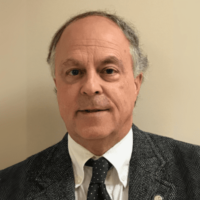
Dr. John E. Emmel
Medical Director
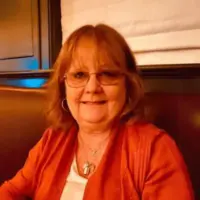
Virginia Beaty, LMSW
Director of Clinical Services

Tiffany White, MS, LMHC
Director of Admissions
Accreditations

The Joint Commission, formerly known as JCAHO, is a nonprofit organization that accredits rehab organizations and programs. Founded in 1951, the Joint Commision's mission is to improve the quality of patient care and demonstrating the quality of patient care.
Joint Commission Accreditation: Yes
Contact Information
499 Wild Hearts Rd
Cameron, SC 29030









